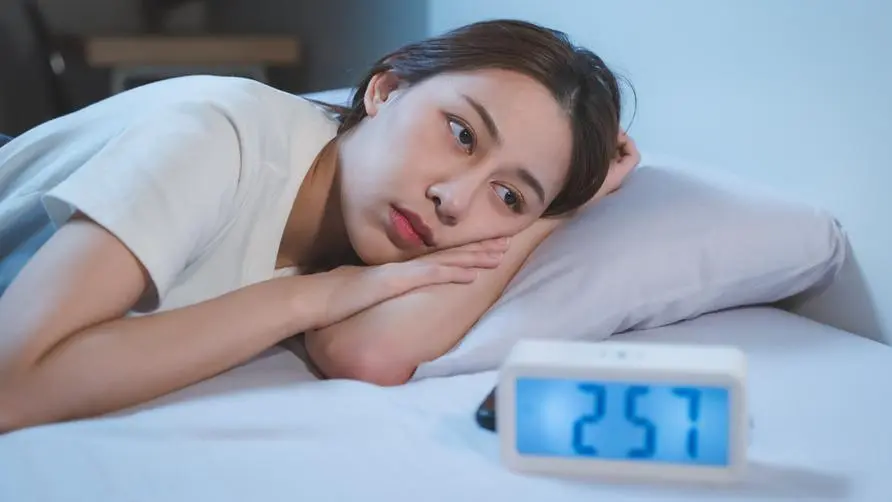I used to fall asleep in three seconds but after being diagnosed, I have "insomnia every day"! Doctors reveal the 4 major impacts of COVID-19

“Falling asleep in 3 seconds” before diagnosis is normal! After contracting the epidemic, she suffered from “insomnia every day” and became a goldfish brain
After Taiwan reached the peak of COVID-19 diagnoses in May this year, many people suffered from “COVID-19” and went to the hospital for treatment. Dr. Yang Junbai, director of the Department of Neurology at Guangtian General Hospital, said that there was a female patient in the clinic. After being diagnosed with COVID-19 at the end of May, although she only developed mild symptoms such as cough and runny nose, she began to suffer from emotional distress after the quarantine was lifted. Problems such as stability, poor memory, and severe insomnia.
“The woman revealed that she used to have a clear mind and be proficient in her work content, but after she was diagnosed, she found that she had forgotten what her boss had just told her as soon as she turned around.” Dr. Yang Junbai pointed out that it is not just memory problems that trouble this patient. , and severe “sleep disorder”. The patient said that he used to sleep very well, but he suffered from “insomnia” every day after the infection, which made him mentally poor, unable to concentrate and had a bad temper.
Are brain fog, insomnia, and mental depression becoming the norm? Can “COVID-19” be treated?
According to guidelines issued by the U.S. Centers for Disease Control and Prevention (CDC), patients with COVID-19 may develop the following symptoms after being diagnosed with the disease:
General symptoms: frequent tiredness or fatigue, extreme discomfort after labor, fever.
Respiratory and cardiac symptoms: dyspnea, hyperpnea, palpitations, cough, chest tightness and chest pain.
Neurological symptoms: brain fog, headaches, insomnia, dizziness when standing, body numbness, changes in smell and taste, mood problems (such as depression or anxiety).
Digestive system symptoms: diarrhea, abdominal pain.
Other symptoms: joint or muscle pain, rash, changes in women’s menstrual cycle.
Dr. Yang Junbai also added that even if the PCR of COVID-19 patients turns negative, their bodies are still in chronic inflammation. The virus not only affects the lungs or respiratory tract, but also attacks the brain and central nervous system, inducing various inflammatory reactions, causing blood vessel or cell defects, and causing many annoying symptoms. “The most common ones are insomnia, brain fog, poor memory, and even affecting the areas of the brain that control emotions, causing depression and anxiety.”
Dr. Yang Junbai said that in order to solve the severe insomnia, the patient received “repetitive transcranial magnetic stimulation” (rTMS) treatment. After the first treatment, his sleep quality improved significantly that night, and his mental state became worse and his concentration became poor. problems are gradually alleviated. rTMS can use tiny currents to stimulate the cerebral cortex that is responsible for emotions and memory, so as to alleviate the brain symptoms caused by COVID-19, and the results can be seen in a short time. However, the treatment time and number of courses will vary depending on the severity of COVID-19. The degree varies.
Fighting against “COVID-19” starts with diet and exercise! Doctor: Get used to doing “3 things” to help improve symptoms
Dr. Yang Junbai also reminded the public that the fight against COVID-19 should start with diet and exercise. For example, the Mediterranean diet and the intake of fish oil are helpful for nerve recovery. In addition, it is also recommended that people develop exercise habits, preferably 3 times a week for 30 minutes each time. However, if the symptoms of COVID-19 in some patients have interfered with their normal routine, it is still recommended to seek medical treatment immediately. For example, due to severe insomnia, it is very difficult for the above-mentioned patients to go to bed early and get up early, let alone spend time exercising. “We believe that patients must have good sleep before they can further adjust their diet and exercise regularly.”
Dr. Yang Junbai believes that it is currently estimated that nearly one million people will face the problem of COVID-19, and the sequelae of COVID-19 require long-term follow-up and treatment. Patients should not think that “it will be fine after the quarantine is lifted.” It is recommended that if the public develops symptoms after recovery, they need to cooperate with doctors on treatment strategies in order to slowly get rid of the annoying sequelae of COVID-19.
Source:
Further reading:





